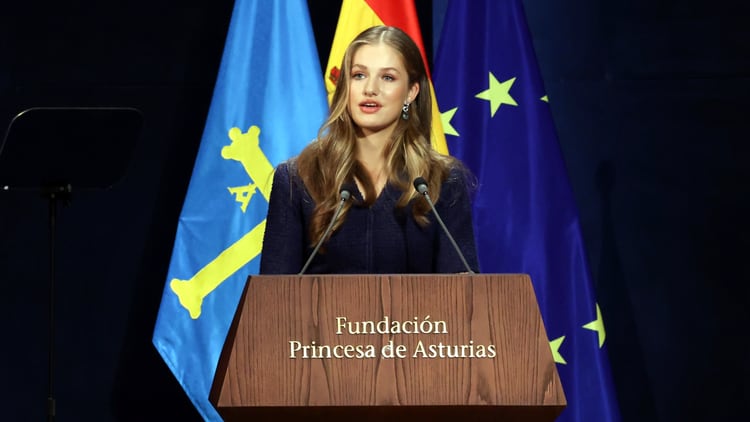Angel Collado
Tomorrow the Princess of Asturias swears in the Constitution before the Cortes Generales (Congress and Senate) in a solemn act that will leave evidence of the contrast between the normal functioning and the guarantee of continuity of the parliamentary Monarchy in the face of the open crisis and the instability installed in the state powers.
Doña Leonor will reaffirm the Crown’s commitment to the democratic regime to which she owes her legitimacy as heir to Felipe VI, not for the mere fact of being his daughter, and she does so before a Parliament divided into two blocks incapable of understanding each other at all and a Acting executive with a president, Pedro Sánchez,trying to achieve the support of the independence groups, to remain in the Government.
The law of laws of Spanish democracy was drafted by consensus of practically all political forces (right and left, socialists, communists and Catalan nationalists) and approved in a referendum with the vote in favor of 91.8 percent of the electorate in 1978. The same Constitution establishes in its article 61.2 the formula that the heir to the Crown must use when reaching the age of majority in his oath before the Cortes: “I swear to faithfully perform my functions, to keep and ensure that the Constitution and the laws, and respect the rights of citizens and autonomous communities, and fidelity to the King.”
Felipe VI spoke those words in Congress in January 1986 in a political environment of respect for institutions and political stability very different from the current “constituent crisis” already recognized by Pedro Sánchez’s second Minister of Justice, Juan Carlos Campo, in May 2021.
37 years ago there was a socialist Government headed by Felipe González with an absolute majority and the president of the Cortes was the also socialist Gregorio Peces-Barba, rapporteur of the Constitution who was in charge of giving special importance to the act that gave continuity to the institution of the parliamentary Monarchy, as such the most modern in Europe.
Unlike the rest of the European monarchies, the King is proclaimed by Parliament and, before being so, the heir (the Prince of Asturias) is obliged to swear by the Constitution. Peces-Barba had been directly responsible for giving legal form to the parliamentary essence of the Spanish Monarchy reborn with the law of laws of 1978.
The particularity of this act, in relation to that of 1986, is that the most extreme left, with a fixed quota in the “progressive” coalition government (the one that is in office and hopes to repeat), plus the Catalan, Basque and Catalan separatists and nationalists Galicians have decided to fail in their responsibilities and not attend the swearing-in.
Even three ministers who are still in office and paid as such, the representatives of Unidas Podemos Irene Montero and Ione Belarra, and the representative of Izquierda Unida, Alberto Garzón, will leave empty the seats that correspond to them as members of the Executive of the Kingdom of Spain in the front row of Congress.
The extreme left and the independence supporters repeat similar arguments to justify their absence at the event, their republican principles and their rejection of an institution that they consider the heir of Francoism and contrary to their particular “plurinational” conceptions of the State. The parliamentary Monarchy represents in fact the “indissoluble unity of Spain of the nation” established in the Constitution, as well as its historical continuity.







